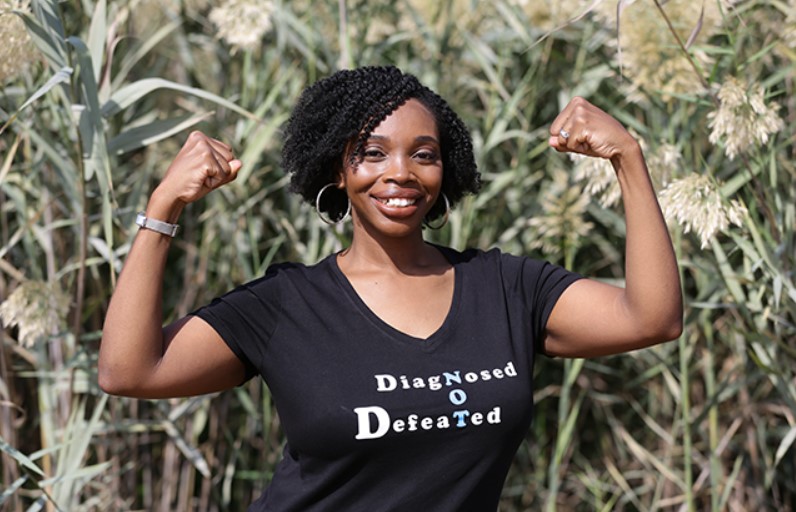
When it comes to managing our health, receiving the proper diagnosis is the first step. More often than not, Black patients receive a misdiagnosis that could either prevent them from receiving proper treatment or even stop a procedure from progressing. Nonetheless, it’s important more than ever that the Black community makes their voices heard in the healthcare system.
At 31 years old, North Carolina resident Phyllisa Deroze realized that she needed to make her voice heard after receiving a misdiagnosis. The Literature professor led a healthy lifestyle, keeping herself in shape and dieting properly. However, her health took a nosedive after doctors informed her she’d been living with Type 2 Diabetes for 8 years.
According to the American Diabetes Association (ADA), Black Americans are at a higher risk of developing diabetes than white and Hispanics. While most cases derive from contributing factors like a poor diet and obesity, the others are based on genetics. Neither statistic is good.
Oftentimes, healthcare providers mistake a diabetes diagnosis simply due to a person’s race. The same happened to Deroze who found herself in and out of the hospital room, constantly trying to manage her type 2 diabetes. Eventually, the mother of one discovered that she had type 1.5 diabetes and received a misdiagnosis. In the end, Phyllisa Deroze realized that speaking out and voicing her concerns was the only way to change her outcome. In 30 seconds, she would have received the proper diagnosis and saved so much time.
RELATED: Diabetes: Questions to Ask Your Doctor
Phyllisa Deroze Thought She Had Type 2 Diabetes
Phyllisa Deroze thought she was living her best life at 31 years old. She worked out five times a week and lost 50 pounds. While her personal life was great, so was her work. She’d just completed her Ph.D. and secured a teaching position in North Carolina as a Literature Professor. There wasn’t a dark cloud in sight for Deroze.
However, in February 2010, things started downhill for her. Deroze started feeling exhausted and thirsty all the time. She went to visit a primary care doctor in the area and was told that she didn’t have enough electrolytes. Furthermore, the doctor advised her to drink Gatorade. During an interview, Deroze revealed that the primary care doctor didn’t even check her vitals. “My blood sugar was never checked. Thirty seconds could have changed it all,” she says.
It wouldn’t be long before Deroze would realize just how right she was. A week later, her symptoms worsened. Deroze’s thirst increased, she urinated constantly and her vision blurred at times. Even during lectures, she caught herself speaking incoherently. Even worse, she passed out just from taking a bath. At that point, she felt as though she were dying.
The North Carolina woman checked herself into the ER. Her blood sugar was off the charts, and her glucose levels were measured at 597. A nurse practitioner informed her that she had type 2 diabetes. Not only that, but she was going into a “diabetic coma.” After being informed of her condition, Phyllisa Deroze stayed in the hospital for 6 days.
However, the diagnosis wasn’t the last of her problems. In fact, it was only the beginning.
She Was Treated As Just Another Statistic
For the next 8 years, the Literature professor lived with the notion that she had diabetes. She started doing more research on her condition, learning everything she could. Deroze even read Patti LaBelle’s cookbook and started on a low-carb diet. She kept with her








